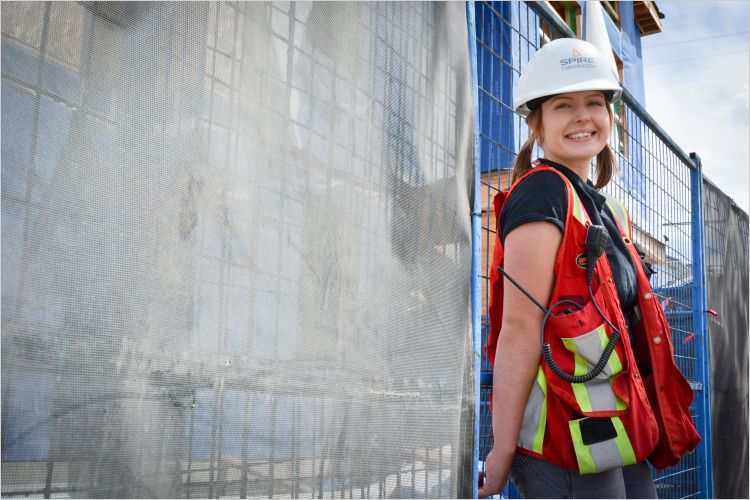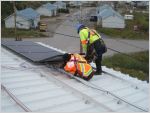
Spire Landing, Passive House rental apartment building, under construction at Fraser Street and East 57th Avenue in Vancouver. July 6, 2018. Photo: Stephen Hui, Pembina Institute.
Canada has an opportunity to include everyone in our emerging energy economy.
As we strive to drive down carbon pollution across our nation’s economy, Canada’s energy systems will undergo transformative change. Post-pandemic investments present an invaluable opportunity to purposefully rebuild in a sustainable way that includes everyone. This month, the Pembina Institute launches a wide-ranging program investigating the barriers and opportunities for women in energy, kicking off with a dialogue in partnership with GLOBE Series called Women in Energy Transformation.
Across Canada, women are championing a movement to address more than just the technical problem of how we produce energy. They are tackling climate change in innovative ways that consider how changes in our energy systems will impact society. Who will have jobs in the emerging energy economy? Who might be left behind? And how will our new energy systems avoid repeating mistakes?
By asking and answering these questions, women are driving the energy transition toward a climate-safe future that will diversify Canada’s economy, ensure we produce no more greenhouse gases than we store (net-zero emissions), and provide equitable opportunities to people from all walks of life.
The Pembina Institute is listening to and elevating women's voices to inform a net-zero future that works for everyone. Our team is conducting research and bringing women together to identify and discuss barriers and solutions, all with the goal of enhancing the participation and leadership of women in the net-zero transition. Inclusive gender representation in the net-zero transition is but one essential step toward addressing the uneven societal impacts of climate change.
We are currently researching barriers that women face in Canada’s net-zero transition, focusing on those that affect their participation and leadership in Alberta’s traditional and emerging energy sectors.
Stay tuned for the publication of our first gender equity report in fall of 2021 and upcoming work to engage with women in energy directly on these issues. And join us on Sept. 29 for the inaugural event in our dialogue series.
The Pembina Institute would like to thank Women and Gender Equality Canada and the McConnell Foundation for their generous support.
![]()



